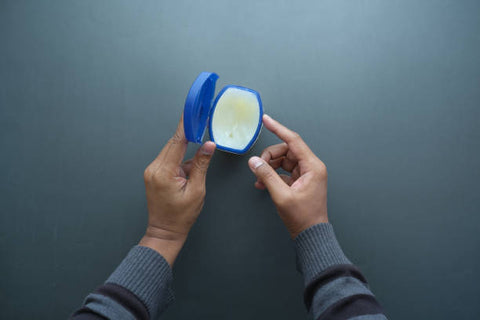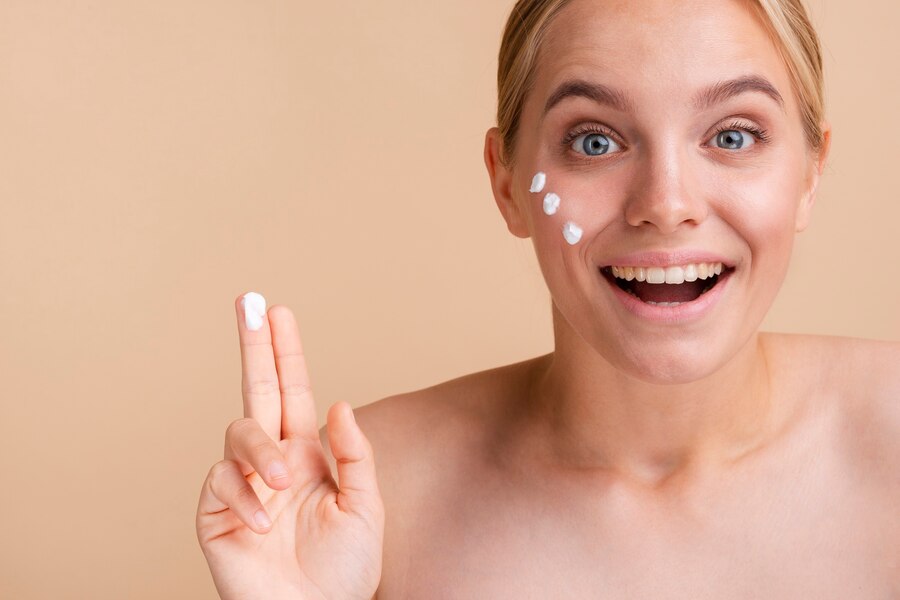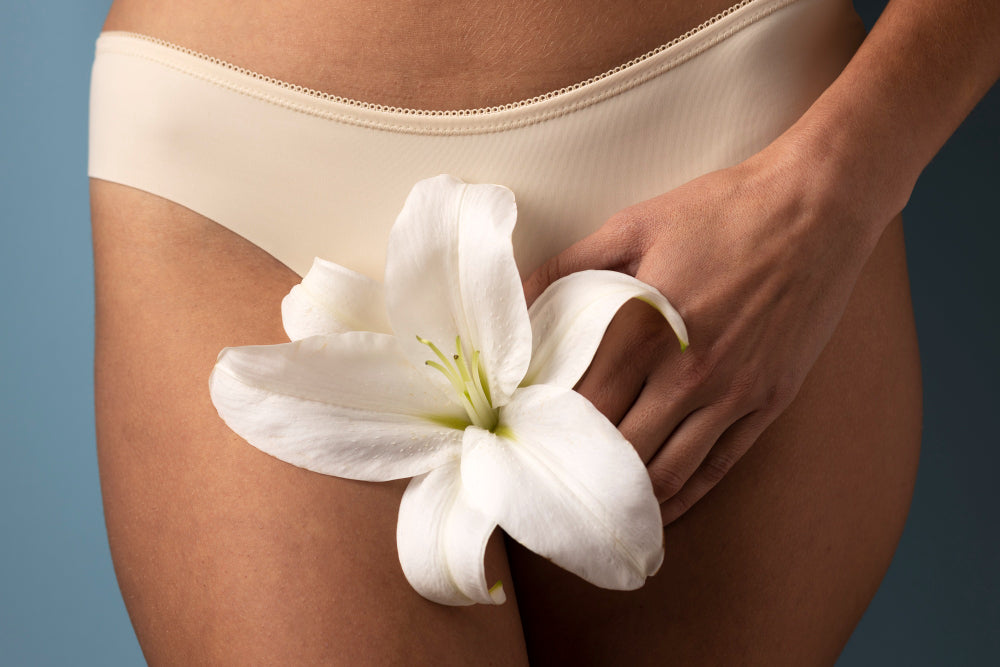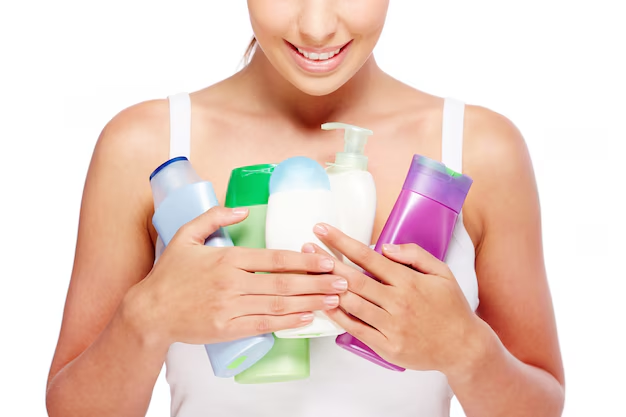Is Vaseline Good For Your Face?
Vaseline is a famous brand of petroleum jelly that many people use as a moisturizer for their face. But is it good for your skin? I will share the benefits and risks of using Vaseline on your face. Read on to learn more about Vaseline and your face.
Vaseline is a brand of petroleum jelly that is safe and effective as a moisturizer for the face. It seals in moisture, protects the skin from environmental factors, and helps heal minor wounds. However, it may also cause acne or skin irritation in some people.
How may you use it effectively and safely? I will answer these questions using the latest scientific evidence and expert opinions. Read on to find out if Vaseline is the right moisturizer for you.
What is Vaseline and How Does It Work on Your Face?
Vaseline, a brand name for petroleum jelly, is a versatile and commonly used skincare product. It is a semi-solid mixture derived from petroleum, and its molecular structure creates a barrier on the skin's surface, preventing moisture loss. When applied to the face, Vaseline forms a protective layer that helps to lock in existing moisture, making it a popular choice for combating dry skin.
Vaseline works as an occlusive agent, sealing in moisture and promoting a barrier against external elements. This barrier function is handy in harsh weather conditions to prevent wind or cold air from causing skin dryness. While Vaseline is effective for moisturizing, it's important to note that it doesn't add moisture to the skin but helps retain the natural moisture.
Vaseline may not be suitable for everyone, especially those with oily or acne-prone skin, as it may exacerbate these conditions. It's essential to patch-test and consider individual skin needs before incorporating Vaseline into your skincare routine. Learn how to test skincare products here. Vaseline is a simple yet effective product for maintaining skin hydration and protecting against environmental stressors.

Benefits of Using Vaseline on Your Face
Using Vaseline on your face may offer several benefits, with moisturizing being a primary advantage. Vaseline forms a barrier on the skin's surface, preventing moisture loss and helping to keep the skin hydrated. This is particularly beneficial for individuals with dry skin, as it locks in existing moisture, leaving the skin feeling soft and supple.
In addition to moisturizing, Vaseline acts as an occlusive agent, creating a protective layer on the skin. This barrier helps shield the face from harsh environmental conditions, such as cold winds or dry air, which may contribute to skin dryness. The protective function of Vaseline makes it especially useful in preventing chapped or windburned skin, particularly during extreme weather.
While Vaseline is a cost-effective and straightforward solution for moisturizing, it's essential to use it judiciously. Individuals with oily or acne-prone skin may want to exercise caution, as the occlusive nature of Vaseline may exacerbate these conditions. Vaseline may be a valuable addition to a skincare routine when used appropriately, providing effective and affordable moisturization.
Which Vaseline is best for the skin?
When choosing Vaseline for your skin, the best option depends on your skincare needs. The classic Vaseline Original Petroleum Jelly is a popular choice for general moisturizing and creating a protective barrier on the skin. It is versatile and suitable for various skincare applications, preventing dryness and chapped skin.
Find our best selection of hyaluronic acid gel moisturizers here.
If you prefer a scented option, Vaseline offers various formulations, like Cocoa Radiant, which combines the benefits of petroleum jelly with a pleasant cocoa fragrance.
Ultimately, the best Vaseline for your skin depends on your preferences and specific needs, whether essential moisturizing, scent preferences, or targeted care for hands or lips.

Risks of Using Vaseline on Your Face
While Vaseline is generally considered safe and effective for specific skincare purposes, there are potential risks associated with using it on your face. One notable concern is the occlusive nature of Vaseline, which forms a thick barrier on the skin. This may trap heat and moisture, potentially leading to blocked pores and exacerbating acne or other skin conditions, especially for individuals with oily or acne-prone skin.
Furthermore, Vaseline on open wounds or irritated skin may hinder natural healing, as the occlusive layer may trap bacteria or impurities. Some people may also be sensitive or allergic to specific components in petroleum jelly, leading to skin irritation or reactions.
Find our best Neutriherbs pro eye gel for dry skin & dark circles here.
It's essential to conduct a patch test before applying Vaseline to your face and to use it judiciously. If you have specific skin concerns or conditions, it's advisable to consult with a dermatologist to determine the most suitable products for your skincare routine. While Vaseline may be beneficial for specific purposes, it may not be the ideal solution for everyone, and caution should be exercised, especially for those with particular skin sensitivities or conditions.

How to Use Vaseline on Your Face?
To use Vaseline on your face effectively, start with clean and dry skin. Apply a small amount of Vaseline, focusing on areas prone to dryness or needing extra moisture. Gently massage the Vaseline into your skin using upward and outward motions, ensuring an even application.
For an overnight treatment, apply a slightly thicker layer of Vaseline before bedtime. This may help lock in moisture and leave your skin feeling soft and hydrated in the morning.
Avoid using Vaseline on open wounds or irritated skin, as it may trap impurities and hinder natural healing. If you have specific skin concerns or conditions, consult a dermatologist before incorporating Vaseline into your skincare routine. When used judiciously, Vaseline may be a simple yet practical addition to your moisturizing routine. Learn different ways to use Vaseline here.
Remember to use Vaseline sparingly, as applying too much may lead to a heavy or greasy feel on the skin.
Is Vaseline suitable for a glowing face?
While Vaseline may contribute to a hydrated and smooth complexion, it might not be the best choice for achieving a glowing face. Vaseline primarily works as an occlusive agent, forming a protective barrier on the skin's surface to prevent moisture loss. While this helps maintain hydration, it doesn't add any additional nutrients or elements contributing to a radiant or glowing appearance.
Products that include antioxidants (vitamins C and E), hyaluronic acid, and exfoliants may be more effective for a glowing complexion. These ingredients may help brighten the skin, reduce dullness, and promote a luminous complexion.
It's important to note that individual skin types and preferences vary. While Vaseline is excellent for sealing in moisture, consider incorporating other skincare products with specific ingredients to promote radiance for a more comprehensive approach to achieving a glowing face.

Does Vaseline brighten skin?
Vaseline, or petroleum jelly, is primarily known for its moisturizing and occlusive properties but is not specifically designed to brighten the skin. While it may help maintain skin hydration and prevent moisture loss, it doesn't contain ingredients known for brightening or lightening the skin.
Products with ingredients like vitamin C, niacinamide, or alpha-arbutin are more suitable for achieving skin brightness. These components have skin-brightening properties and may help reduce hyperpigmentation, dark spots, and skin tone.
Find our best Neutriherbs salicylic acid gel cleanser for oily & acne-prone skin here.
If your goal is to brighten your skin, consider incorporating products specifically formulated for that purpose into your skincare routine, and always use sun protection to prevent further darkening of pigmentation.
Is it okay to put Vaseline on your face every day?
It is possible to use Vaseline on the face, but it's essential to be careful and consider one's specific skin requirements. Using a thin layer of Vaseline on the face occasionally, especially during dry or harsh weather conditions, may help retain moisture and avoid dehydration for many people.
However, using Vaseline on the face daily may not affect everyone. Individuals with oily or acne-prone skin should be cautious, as the occlusive nature of Vaseline may exacerbate these conditions. If you have specific skin concerns or conditions, it's advisable to consult with a dermatologist to determine the most appropriate skincare routine for your needs.
Remember that Vaseline primarily acts as a barrier to lock in existing moisture, so it may not provide additional skincare benefits like those offered by specialized moisturizers with added ingredients. As with any skincare product, patch-testing and observing how your skin responds to regular use is crucial.

Conclusion:
Vaseline has benefits and considerations as a versatile skincare product. It moisturizes and provides a protective barrier, especially in dry or harsh weather conditions. However, individuals with oily or acne-prone skin should exercise caution when using it on their faces. It is crucial to patch test and consult a dermatologist for specific skin concerns. Regular use of Vaseline may not offer any additional skincare benefits compared to specialized moisturizers, and individuals should evaluate their personal preferences and skin conditions to decide if it's an excellent addition to their skincare routine for optimal results.



